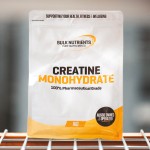Creatine HCL vs Monohydrate
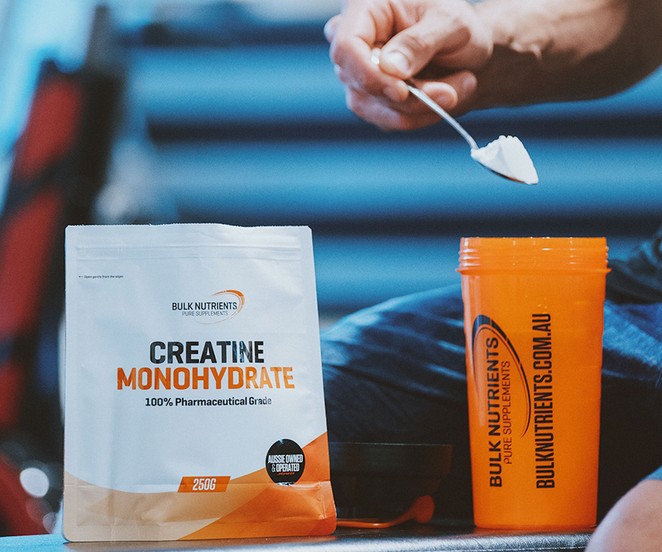
Creatine HCL vs. Monohydrate: What is Creatine HCL?
Think of creatine HCL as the cool cousin of the beloved creatine monohydrate. While OG creatine monohydrate has been flexing its muscles in the athletic world for ages, creatine HCL is the new-gen variant that’s making waves.
Now, let’s chat about the basics. Creatine is 100% natural, and you'll find traces of it in certain foods. And a fact most people don’t know… our bodies are mini creatine factories whipping it up from amino acids, with the liver, kidneys, and pancreas leading the production line.
Its claim to fame is that it is a key player in producing adenosine triphosphate (ATP). ATP is that precious fuel we tap into when we're gunning for short, intense bursts of energy, like deadlifting our personal best or dashing to the finish line.
But here’s where creatine HCL is unique. It's teamed up with a hydrochloride molecule.
This duo is a solubility superstar. In fact, creatine HCL is 38 times more soluble than creatine monohydrate. Because of this, our bodies absorb it like a dream.
Let’s face it, no one's a fan of that pesky gastrointestinal discomfort some creatine variants might induce. With its brilliant solubility, creatine HCL drops that discomfort risk way down.
The word's out — creatine HCL is quickly becoming the talk of the town in gym corridors and fitness forums, thanks to its water-loving nature and impressive absorption credentials.
So, if you're interested in creatine HCL vs. monohydrate, now you know what creatine HCL is all about.
Onto the latter!

Creatine HCL vs Monohydrate: What is Creatine Monohydrate?
Creatine Monohydrate isn’t just any ordinary supplement; it's the OG, the benchmark, the gold standard of creatines.
It’s all in the name; let’s break it down.
Mono means one. Hydrate? Well, that's water. Combine the two, and what do you have? A creatine molecule teamed up with a water molecule.
But it doesn’t get its iconic status from its neat chemical bonding. Instead, it's the enormous body of research that stands proudly behind it.
We're talking about stacks and stacks of studies, decades of sweat and tears (literally), and countless athletes who've vouched for it. This isn't just some passing trend or the flavour of the month; creatine monohydrate is here to stay.
So, why all the love? This little powerhouse is a force to be reckoned with when it comes to muscle energy. Whether you're pumping iron, sprinting, or pushing through that final set, creatine monohydrate is your muscles' best friend, providing them with the fuel they need.
Let's not forget its efficacy in boosting overall athletic performance. Don’t just take our word for it; the research speaks for itself.
If you’re on the fence about creatine HCL vs. monohydrate, this explains all you need to know about the latter.
Let’s jump into how the two differ.
Creatine HCL vs. Monohydrate: What's the Difference Between the two?
Alright, gym warriors and fitness aficionados, let’s settle this debate.
Creatine HCL vs. creatine monohydrate: Which is the real MVP?
Creatine monohydrate is the seasoned pro; it’s a well-established supplement that's been a favourite for years. Its long-standing reputation often translates to affordability. Wallets worldwide appreciate its relatively pocket-friendly nature.
However, remember that with HCL's smaller recommended dose, the price-per-dose game might be closer than you think.
While monohydrate has won the hearts of many, some users have experienced stomach discomfort. As you can imagine, this isn’t everyone's cup of tea. Thanks to its solubility, creatine HCL might reduce that discomfort risk, making your journey smoother and your workouts better.
So, creatine HCL vs. monohydrate: Which one is for you? Both have their pros. Whether you go with creatine HCL, the cool newcomer, or creatine monohydrate, the OG that’s been in the game for years, it's all about what works for you. Your body, your goals, your choice!
What's Creatine Good For?
Creatine, in all its forms, offers an impressive variety of benefits.
Amp up your game like a pro
Fancy some explosive power in your training sessions? Enter creatine: the hero of ATP production. It's like that secret ingredient in a recipe — it's not flashy, but oh boy, does it make everything taste better.
With creatine on your side, your cells will have all the energy they need for those short and sweet bursts of power.
Your muscles will thank you
If muscles had BFFs, creatine would be it. This superstar can help you bulk up by teaming up with hormones like IGF-1 and increasing water content in those muscle cells.
It’s not just a wingman; it’s THE wingman for all your gain goals.

Brain gains, anyone?
Who said creatine was all about the brawn? It’s got brains too!
Moving beyond just flexing muscles, this compound is great for brain health. Whether you’re an athlete or someone just trying to remember where they left their keys, creatine's got your back—or rather, your brain.
Bounce back like never before
Have you ever worked out too hard and felt sore and flat the next day? Creatine is your rejuvenation station, ensuring you recover faster than you can say "muscle soreness."
Creatine can minimise damage and tame the flames of inflammation. It's like catching a cool breeze after a hot summer day.
So, creatine HCL vs. monohydrate? Whichever form you choose, creatine is a top player in the supplement game.
Does Creatine Have Any Side Effects?
Like all good things, moderation is key. Although creatine is safe for most, it does have its potential drawbacks.
One characteristic of creatine monohydrate is that it retains water. The effect? Your muscles might appear more 'plumped up'. Although this can be a confidence boost, keep in mind that it may also bump up your weight on the scales. But remember, it's mostly water retention and if you are using creatine correctly and chosen the correct serve size, this is water where you want water to be… inside the muscle.
Have you ever had moments where your stomach "speaks" to you? Some people might feel this after taking creatine, experiencing symptoms like cramps or occasional nausea. A simple solution is to drink more water, which can help alleviate these symptoms.
Before adding any supplement to your diet, it’s important to consult with a healthcare professional. When it comes to supplements, both creatine HCL and the classic monohydrate are generally considered safe.
But as with anything, it's essential to understand how it affects you individually. Always do your research and listen to your body.
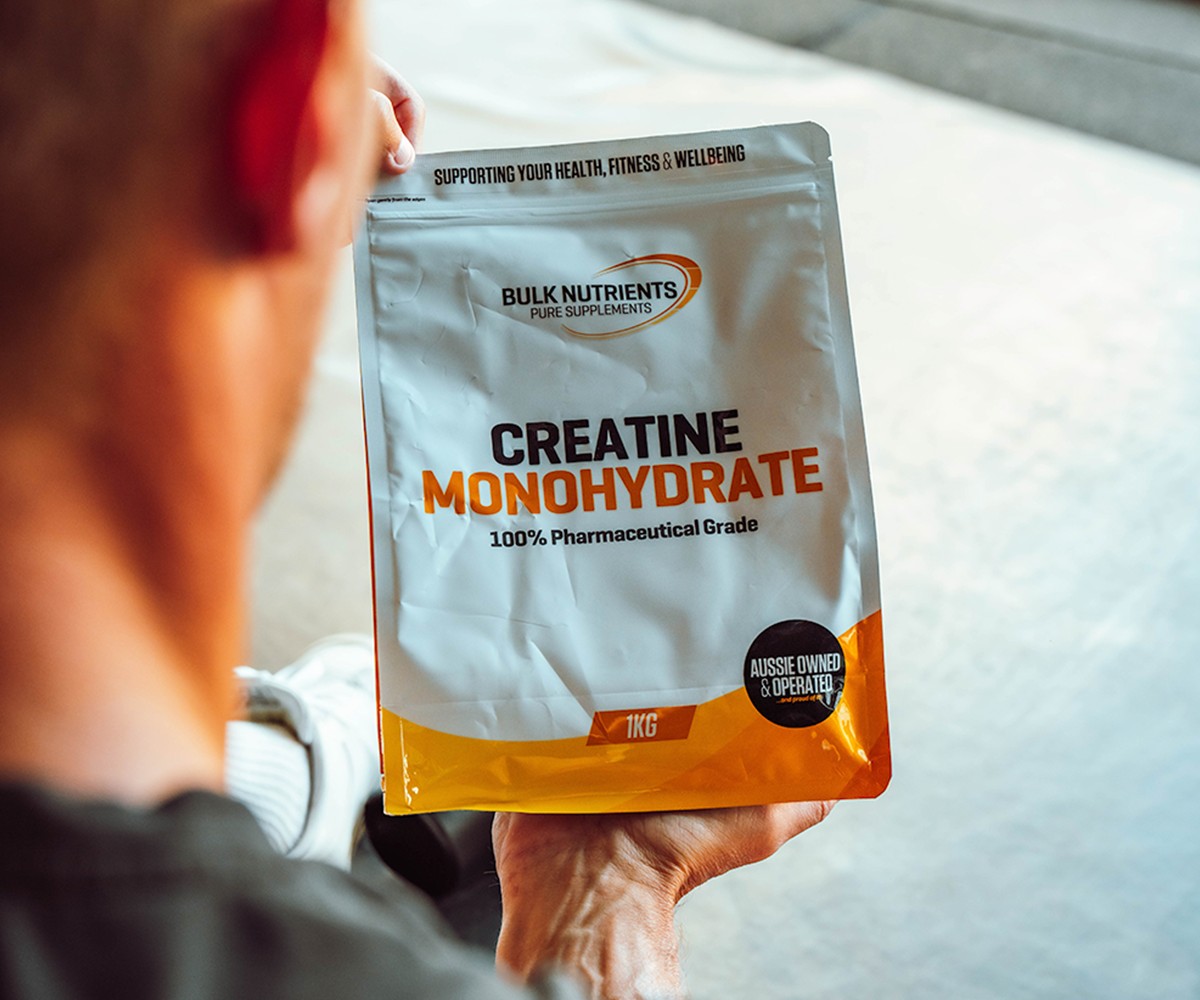
Bulk’s Micronised Creatine Monohydrate
In the world of creatine, absorption matters.
Creatine HCL is known for its impressive solubility, attributed to its bond with a hydrochloride molecule, leading to rapid absorption.
Bulk Nutrients’ Creatine Monohydrate is micronised to a 200 mesh particle size which takes a step closer to this benchmark.This micronisation process not only enhances solubility but aims to improve absorption rates, bridging the gap between monohydrate and HCL.
By refining the particle size, our Creatine Monohydrate offers smoother mixability and faster absorption.
Creatine HCL vs. Monohydrate: Which is Right for You?
If you’re at a crossroads with your fitness journey and tossing up between creatine HCL and monohydrate, it’s not about good or bad. It’s about what aligns with your goals and body.
Monohydrate is a trusted ally for many, thanks to its longstanding reputation and proven results. Meanwhile, creatine HCL is winning hearts (and muscles) all over with its solubility.
Before adding either to your routine, always consult with a healthcare professional, consider your goals, listen to your body, and perhaps even test both to see which suits you best.
Creatine HCL vs. monohydrate: Which will you choose?

Nick is Bulk's Customer Service team's Technical Support Officer.
Which is our way of saying he's the guy whose job it is to answer your obscenely technical supplement questions.
More about Nick TelescaReferences:
- Suguru SAITO, Duo-Yao CAO, Alato OKUNO, Xiaomo LI, Zhenzi PENG, Musin KELEL and Noriko M TSUJI, Creatine supplementation enhances immunological function of neutrophils by increasing cellular adenosine triphosphate, Published online 2022 Jun 17. doi: 10.12938/bmfh.2022-018.
https://www.ncbi.nlm.nih.gov/pmc/articles/PMC9533032/ - Brandon T Gufford, Kamaraj Sriraghavan, Nicholas J Miller, Donald W Miller, Xiaochen Gu, Jonathan L Vennerstrom, Dennis H Robinson, Physicochemical characterization of creatine N-methylguanidinium salts, 2010 Sep, DOI: 10.3109/19390211.2010.491507.
https://pubmed.ncbi.nlm.nih.gov/22432515/ - Sergej M Ostojic, Zlatko Ahmetovic, Gastrointestinal distress after creatine supplementation in athletes: are side effects dose dependent?, 2008, DOI: 10.1080/15438620701693280, https://pubmed.ncbi.nlm.nih.gov/18373286/
- Shih-Hao Wu, Kuan-Lin Chen, Chin Hsu, Hang-Cheng Chen, Jian-Yu Chen, Sheng-Yan Yu, and Yi-Jie Shiu, Creatine Supplementation for Muscle Growth: A Scoping Review of Randomized Clinical Trials from 2012 to 2021, Published online 2022 Mar 16. doi: 10.3390/nu14061255.
https://www.ncbi.nlm.nih.gov/pmc/articles/PMC8949037/ - Benjamin Wax, Chad M Kerksick, Andrew R Jagim, Jerry J Mayo, Brian C Lyons, Richard B Kreider, Creatine for Exercise and Sports Performance, with Recovery Considerations for Healthy Populations, Published online 2021 Jun 2, DOI: 10.3390/nu13061915.
https://pubmed.ncbi.nlm.nih.gov/34199588/ - Konstantinos I. Avgerinos, Nikolaos Spyrou, Konstantinos I. Bougioukas and Dimitrios Kapogiannisd, Effects of creatine supplementation on cognitive function of healthy individuals: A systematic review of randomized controlled trials, Published online 2018 Apr 25, doi: 10.1016/j.exger.2018.04.013.
https://www.ncbi.nlm.nih.gov/pmc/articles/PMC6093191/
Related Blogs
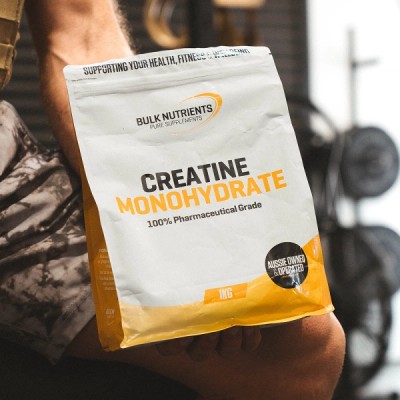
How To Take Creatine: Dosage & Timing Methods
Posted by Nick Telesca
Estimated reading time: 6 minutes
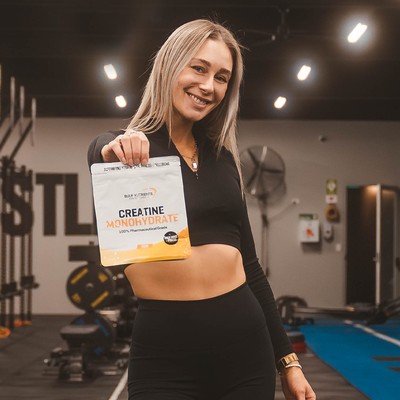
Why women shouldn't fear creatine
Posted by Bulk Nutrients
Estimated reading time: 2 minutes
